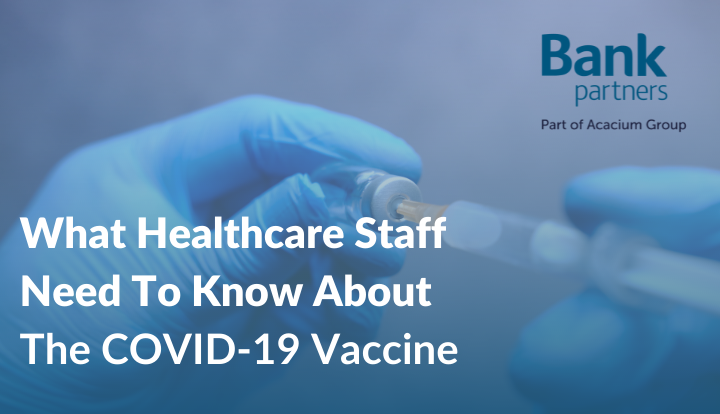
Whilst we know that the COVID-19 vaccine offers the best protection against serious illness from coronavirus, it is understandable that you may have questions or concerns before getting it. In this blog, we are going to share with you the facts, top tips, and resources around the coronavirus vaccine so you can make the best choice for you.
Why get the COVID-19 Vaccine?
Not only does the vaccine protect you from serious illness but it also protects those around you, including your family, patients and colleagues, by reducing the chance of you passing it to them. Vaccines are designed to reduce and even fully eradiate diseases. Since vaccines were introduced in the UK diseases like polio and smallpox which used to kill and disable millions of people are now extremely rare.
You can find out more about why vaccination is safe and important here.
Is the vaccine safe?
With the misinformation online and on social media, it can be difficult to know what is correct and accurate. However the NHS page on the side effects and safety of the coronavirus vaccine confirms that reports of side effects are extremely rate. The most common side effects of it are a sore arm, feelings tired or achy or having a headache.
It is important to remember that the vaccine had to go through several stages of clinical trials before it could be approved for use and the approved vaccines have been tested on thousands around the world to ensure their safety.
In the UK all vaccines are monitored and approved by the independent Medicines and Healthcare products Regulatory Agency (MHRA). They ensure the vaccine meets strict international standards so recipients can feel confident in the safety and effectiveness of it. Not only this but they will continue to monitor it going forward as well.
What if I’m scared of needles?
Vaccinations can be a very anxious or distressing if you suffer with a fear of needles. However it is a very common fear and there are many resources which can help you manage it.
Anxiety UK have a brilliant page of resources specific to supporting people getting a COVID-19 vaccine here. Their booklets give tips for overcoming your phobia and also outlines treatment options.
When you are receiving your vaccine, be sure to tell the person administering it that you have anxiety and let them know you what you will be doing to manage your anxiety. This could be anything from counting things in the room, asking them if they could talk to you to distract you or any combination of the tips from the Anxiety UK page.
It is important to know that your vaccinator is there to support you and will have delivered many vaccines before so they will likely have met others with anxiety and are trained to guide you through the process.
If you’re still unsure about receiving the vaccine it could be worth speaking to the clinical team at the healthcare setting you work in. Alternatively you can call your GP or 119 to speak to specialist NHS teams about any questions or concerns you are experiencing.
The information in this article is for general informational purposes only and not a substitute for professional medical advice. Always consult a qualified healthcare provider for personalised guidance. The author(s) and publisher(s) are not liable for errors or omissions, and reliance on the content is at your own risk.